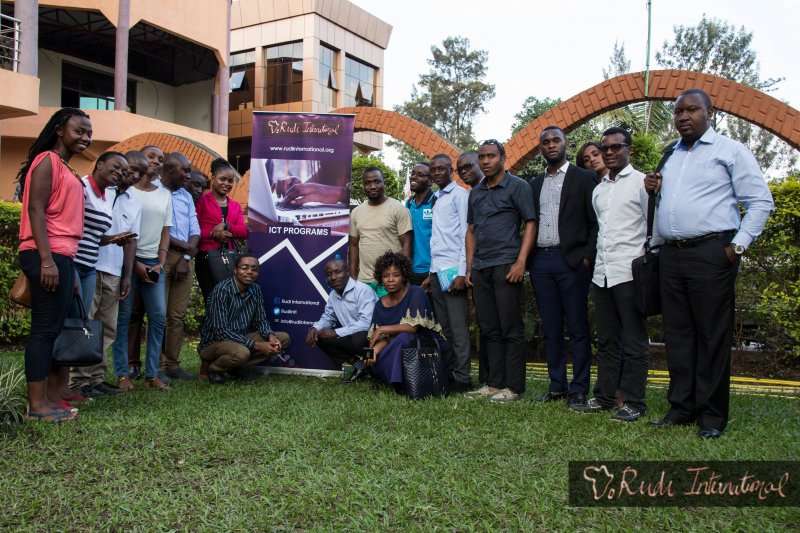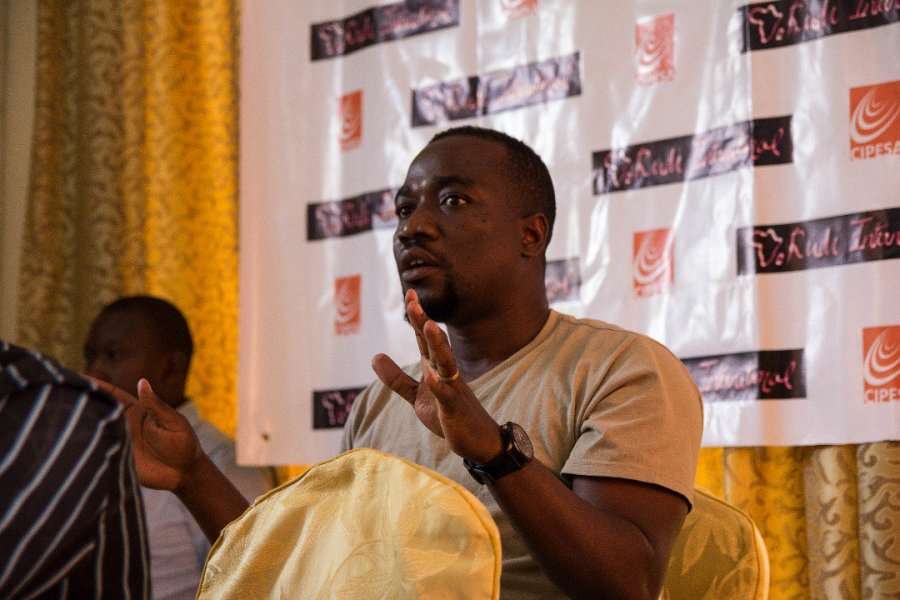Statement |
Les acteurs de la société civile dans la ville congolaise de Goma ont exhorté le Gouvernement de la République démocratique du Congo (RDC) à apporter des modifications à ses lois actuelles régissant les technologies de l’information et de la communication (TIC) pour les rendre favorables à la croissance de l’utilisation d’Internet, comme la vie privée en ligne, l’accès à l’information et la liberté d’expression.
Les acteurs de la société civile, y compris des journalistes, des militants des droits numériques et les blogueurs, ont également exhorté le Parlement du pays et le Ministère des TIC à offrir des moyens significatifs aux citoyens de fournir des contributions aux nouvelles lois proposées dans le secteur des télécommunications.
Le gouvernement a récemment envoyé au Parlement le projet de loi sur les télécommunications et les TIC visant à mettre à jour la loi-cadre 013/2002 sur les télécommunications, ainsi que le projet de loi sur les transactions électroniques, et une loi modifiant la loi qui a mis en place le régulateur – l’Autorité de Régulation des Postes et Télécommunications du Congo (ARPTC). Cependant, ni le Parlement ni le Ministère n’ont annoncé de possibilités pour les autres parties prenantes de faire des commentaires ou des observations sur ces projets de loi.
L’importance des consultations des parties prenantes dans les processus décisionnels en RDC a été l’une des questions qui ont émergé lors d’un atelier de formation sur les politiques et le plaidoyer autour des TIC tenu à Goma les 10 et 11 juin 2017 par Rudi International en collaboration avec Collaboration on International ICT Policy for East and Southern Africa (CIPESA). Les participants ont noté que l’exclusion des acteurs, comme ceux du secteur privé, de la société civile, etc. du processus législatif pourrait conduire à l’adoption de lois qui nuisent à l’accès et à l’utilisation de l’internet dans le pays d’Afrique centrale.
À l’heure actuelle, l’adoption des TIC en RDC fait face à plusieurs défis, y compris des coûts de données déraisonnablement élevés qui ont largement contribué au faible taux de pénétration de l’Internet de 4,2% en 2016. La loi-cadre 013/2002 sur les Télécommunications et la loi 14/2002 sur le Régulateur sont les lois primaires régissant entre autres, les communications en ligne, mais elles ne prévoient pas suffisamment de garanties au sujet des droits des citoyens à la vie privée, ni ne fournissent un environnement propice aux citoyens pour jouir du droit à la libre expression sur Internet.
En outre, ces lois contiennent des clauses vagues telles que « l’intérêt public », « perturbation de l’ordre public », « vérité ultime » et « sécurité nationale » qui créent la latitude pour des abus des lois, y compris par la censure et la surveillance. Pendant ce temps, les fournisseurs de services d’Internet et de télécommunications n’ont pas de protection contre les interférences indues de l’État, comme en témoigne l’évolution des coupures de l’Internet ces dernières années.
Les nouvelles lois proposées sont les bienvenues parce qu’elles présentent l’opportunité d’expurger des articles rétrogradés des lois existantes et de remédier aux lacunes actuelles. Cependant, les projets de loi ne reflètent pas une protection suffisante pour les droits des citoyens à la vie privée et à la liberté d’expression, et ils ne prennent pas en charge adéquatement la libre circulation de l’information en ligne. Par exemple, le projet de loi sur les Télécommunications et les TIC contient plusieurs clauses problématiques, notamment en accordant au Ministre des pouvoirs excessifs sur l’interception des communications et leur interruption. Le ministre et l’organisme de régulation renforcent également leur pouvoir face aux opérations des prestataires de services. En outre, il existe de faibles dispositions relatives à la protection des données ; le projet de loi étant dépourvu de mécanismes indépendants de surveillance, en particulier en ce qui concerne l’Etat qui fait des demandes d’informations sur les abonnés aux fournisseurs de services.
Le manque de mécanismes indépendants de surveillance pour lutter contre l’abus du pouvoir excessif par le ministre ne garantit pas que les citoyens soient protégés contre l’interception injustifiée de la communication.
Bien que l’article 175 du projet de loi sur les télécommunications et les TIC reconnaisse le droit du citoyen de demander des informations sur ses données personnelles auprès de l’État ou d’une autre entité, il n’existe pas de dispositions claires sur la manière dont ces informations peuvent être demandées ou si les détenteurs de cette information sont obligés de répondre à une demande d’information dans un délai déterminé.
La communication en ligne sécurisée est prioritaire selon les articles 116-117. Cependant, des clauses qui permettent à l’Etat d’intercepter la communication privée avec des garanties limitées sont également incluses. En outre, l’article 119 comprend une disposition pour que le Procureur général désigne un magistrat en chef qui peut demander à un agent qualifié du Ministère des TIC ou d’une entreprise de télécommunications de mettre en place des mécanismes permettant l’interception de la communication en ligne des citoyens.
Au cours de l’atelier de formation, les acteurs de la société civile ont noté que ces clauses contreviennent aux normes internationales en matière de droits de l’homme énoncées dans un certain nombre d’instruments, y compris la Déclaration universelle des droits de l’homme, la Charte africaine des droits de l’homme et des peuples et la Déclaration africaine sur les droits et les libertés de l’Internet.
En tant que tel, ils ont recommandé que:
- Il devrait y avoir une participation accrue de plus d’acteurs dans le processus de développement de la loi, ainsi que des engagements réguliers multipartites entre le gouvernement, les prestataires de services et la société civile;
- Le gouvernement, en particulier le Ministère des TIC et le Parlement, devrait diffuser largement les trois projets de loi, sensibiliser à leurs objectifs et inviter des commentaires des diverses parties prenantes;
- La législature devrait veiller à ce que les terminologies vagues, y compris la « sécurité nationale », les « illicites » et les « interférences a l’ordre public », soient bien définies avant l’adoption de ces lois ;
- Suite au fait que, dans sa forme actuelle, le projet de loi sur les télécommunications et les TIC crée des marges d’abus en donnant des pouvoirs excessifs au Régulateur et aux Ministres de l’Intérieur, de la Défense et de la Sécurité, le pouvoir judiciaire et le Parlement devraient avoir un mandat de surveillance plus large sur le Régulateur et le Ministre.
- Une loi spécifique sur la protection des données devrait être promulguée pour garantir la sauvegarde des données personnelles et de la vie privée des citoyens;
- Le projet de loi sur les Télécommunications et les TIC devrait préciser les procédures pour que les citoyens demandent de l’information de l’État et la publication de ces informations par l’État;
- Les trois lois examinées par le Parlement devraient inclure des clauses qui protègent le droit à la liberté d’expression et la libre circulation de l’information;
- Des clauses sur la non-discrimination et l’égalité devraient être introduites dans la loi proposée sur les télécommunications et les TIC, notamment en criminalisant les actions qui favorisent le cyber-harcèlement, la pornographie de vengeance et d’autres actes qui constituent une violence en ligne contre les femmes et d’autres groupes minoritaires et vulnérables.
Ces recommandations font écho à celles faites par le CIPESA dans le rapport sur l’Etat des libertés de l’Internet en RD Congo en 2016, qui a également demandé au Parlement de travailler avec d’autres parties prenantes, y compris la société civile, les internautes, le secteur privé, les universitaires et les médias pour examiner les lois et modifier celles qui limitent et restreignent les droits des citoyens à la vie privée, à la liberté d’association, d’expression et à l’accès à l’information. Le rapport a également déclaré que la rédaction et la modification des lois devraient respecter des normes internationales acceptables en matière de droits de l’homme.





